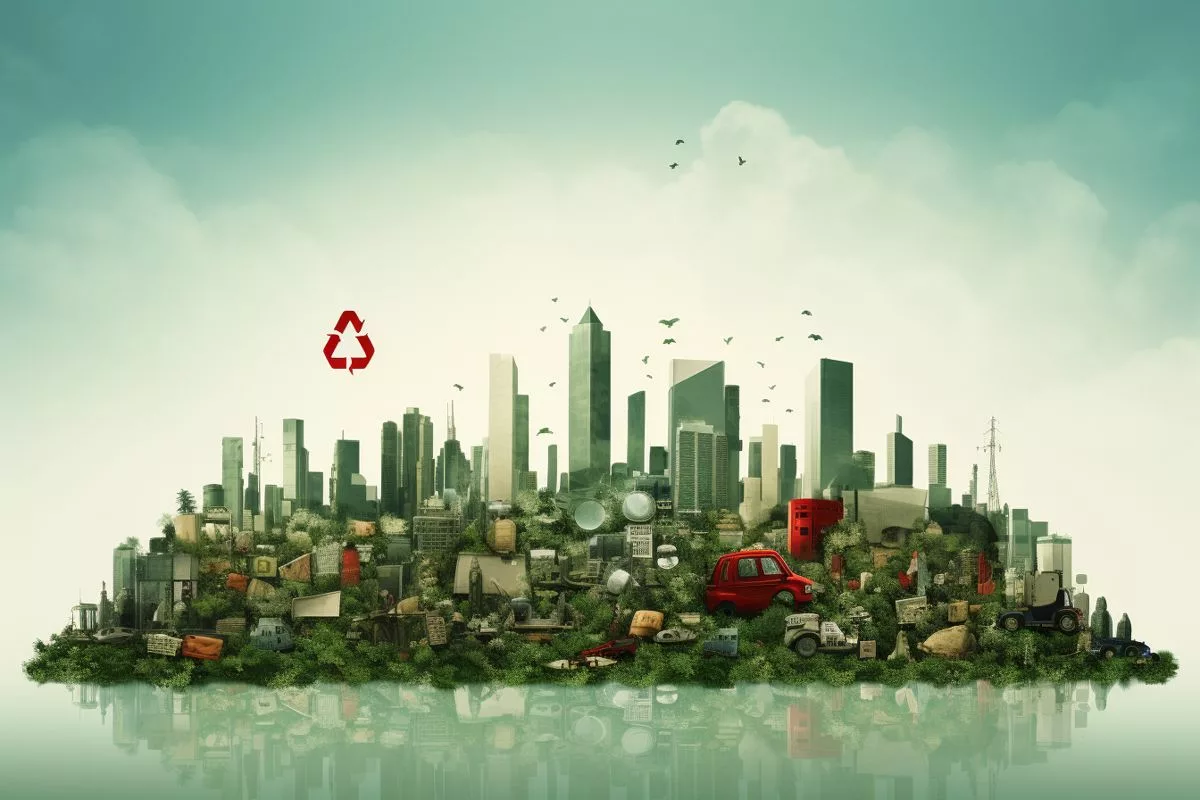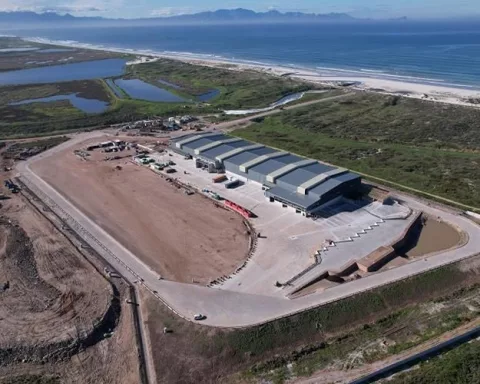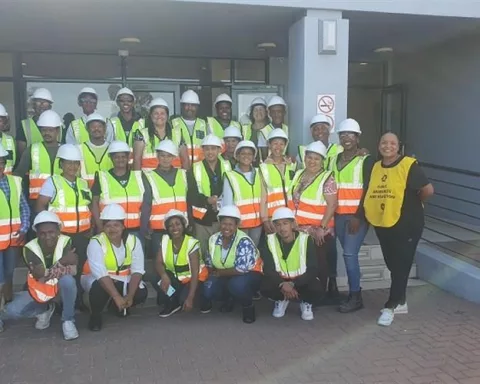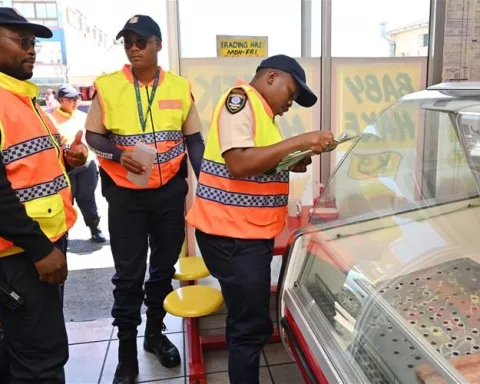Cape Town has launched an interactive Waste Recyclers’ Map that connects residents and businesses to certified private recycling service providers. The initiative promotes eco-conscious and sustainable waste management practices by simplifying the process of locating recycling facilities for a wide range of recyclable materials. The city’s commitment to advancing a circular economy through the Waste Recyclers’ Map serves as an example for other cities and nations to follow, highlighting the power of innovation, collaboration, and community involvement in promoting sustainable waste management practices.
What is Cape Town’s Waste Recyclers’ Map?
Cape Town’s Waste Recyclers’ Map is an interactive platform that connects residents and businesses with certified private recycling service providers. The map accommodates a wide range of recyclable materials and simplifies the process of locating recycling facilities, promoting eco-consciousness and sustainable waste management practices. The initiative reflects the city’s commitment to advancing a circular economy and serves as an example for other cities and nations to follow.
Paving the Way for Sustainable Waste Management
Cape Town has recently introduced a groundbreaking initiative to promote the growth of a circular economy in South Africa. By launching the Waste Recyclers’ Map, city officials aim to connect inhabitants and businesses with certified private recycling service providers, significantly decreasing waste generation and promoting eco-friendly practices.
Originating from the National Waste Management Strategy’s primary goals, the establishment of a circular economy surpasses the conventional linear method where resources are extracted, utilized, and disposed of. Instead, this inventive economic system supports a closed-loop model, emphasizing waste prevention, reuse, repair, refurbishment, and recycling. Cape Town’s recent implementation of the Waste Recyclers’ Map plays a vital role in enabling this fundamental shift.
The interactive map, accessible to both residents and businesses, allows users to find and engage with certified private recycling service providers in their local area. The platform accommodates a broad range of recyclable materials, such as electronic waste, textiles, batteries, plastic, glass, paper, construction debris, wood, timber, tires, rubber, metals, oil, paper-based cartons, and organic waste.
Streamlining Access to Recycling Services
In addition, the Waste Recyclers’ Map enables users to determine if their location qualifies for the City’s Think Twice service—an initiative devised to encourage recycling and waste reduction. By simplifying the process of locating recycling facilities and fostering eco-consciousness, Cape Town makes substantial progress towards a sustainable future.
Alderman Grant Twigg, Mayoral Committee Member for Urban Waste Management, highlighted the potential for expansion and job creation within Cape Town’s flourishing private waste management sector. He maintained that the Waste Recyclers’ Map functions as an invaluable resource for supporting this growth by linking waste producers with organizations capable of deriving value from discarded materials. Twigg called on all residents and businesses to explore environmentally friendly waste disposal alternatives, particularly those not currently participating in the municipal recycling program.
The Waste Recyclers’ Map can be accessed here, and users are encouraged to bookmark it in their internet browser for convenient access. Recycling collectors and buy-back centers interested in being featured on the map can request an application form by emailing re.cycling@capetown.gov.za or completing the online form here.
Setting a Global Example
Cape Town’s Waste Recyclers’ Map demonstrates the city’s commitment to advancing a circular economy and endorsing sustainable waste management practices. By utilizing technology and involving the community, this project has the potential to transform the way resources are consumed and waste is managed in the city, leading to a cleaner, greener future.
As the circular economy gains momentum worldwide, Cape Town’s Waste Recyclers’ Map serves as an example for other cities and nations to follow. By providing citizens with comprehensive and easily accessible information about recycling services, city officials show their determination to create a sustainable, environmentally mindful community. This cutting-edge approach to waste management reflects a broader global movement towards adopting sustainable practices and transitioning from a linear to a circular economy.
Harnessing the Power of Innovation
The tangible benefits of implementing the Waste Recyclers’ Map, such as job creation, reduced waste generation, and preservation of valuable resources, mark a significant milestone on Cape Town’s path towards sustainability. This progressive initiative has promising implications for the city’s future as it strives to become a leader in waste management and the circular economy.
In conclusion, Cape Town’s Waste Recyclers’ Map exemplifies the power of innovation, collaboration, and community involvement in promoting sustainable waste management practices. This trailblazing tool has the potential to inspire other cities and countries to adopt similar measures, contributing to the global transition towards a circular economy and shaping a greener, more sustainable world for generations to come.
1. What is Cape Town’s Waste Recyclers’ Map?
Cape Town’s Waste Recyclers’ Map is an interactive platform that connects residents and businesses with certified private recycling service providers. The map accommodates a wide range of recyclable materials and simplifies the process of locating recycling facilities, promoting eco-consciousness and sustainable waste management practices.
2. What is the primary goal of the National Waste Management Strategy?
The primary goal of the National Waste Management Strategy is to establish a circular economy that emphasizes waste prevention, reuse, repair, refurbishment, and recycling.
3. What kind of recyclable materials does the Waste Recyclers’ Map accommodate?
The Waste Recyclers’ Map accommodates a broad range of recyclable materials, such as electronic waste, textiles, batteries, plastic, glass, paper, construction debris, wood, timber, tires, rubber, metals, oil, paper-based cartons, and organic waste.
4. What is Cape Town’s Think Twice service?
Cape Town’s Think Twice service is an initiative devised to encourage recycling and waste reduction. Users of the Waste Recyclers’ Map can determine if their location qualifies for this service.
5. How can recycling collectors and buy-back centers be featured on the Waste Recyclers’ Map?
Recycling collectors and buy-back centers interested in being featured on the map can request an application form by emailing re.cycling@capetown.gov.za or completing the online form on the City of Cape Town’s website.
6. What potential benefits does the Waste Recyclers’ Map offer?
The Waste Recyclers’ Map has tangible benefits, such as job creation, reduced waste generation, and preservation of valuable resources, marking a significant milestone on Cape Town’s path towards sustainability.
7. How does the Waste Recyclers’ Map reflect a broader global movement?
The Waste Recyclers’ Map reflects a broader global movement towards adopting sustainable practices and transitioning from a linear to a circular economy.
8. What can other cities and nations learn from Cape Town’s Waste Recyclers’ Map?
Other cities and nations can learn from Cape Town’s Waste Recyclers’ Map and the city’s commitment to advancing a circular economy by providing citizens with comprehensive and easily accessible information about recycling services, promoting sustainable waste management practices, and involving the community.












